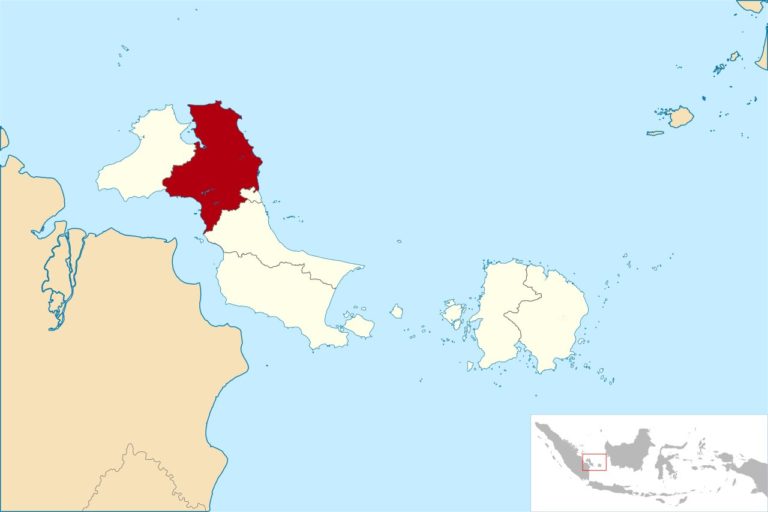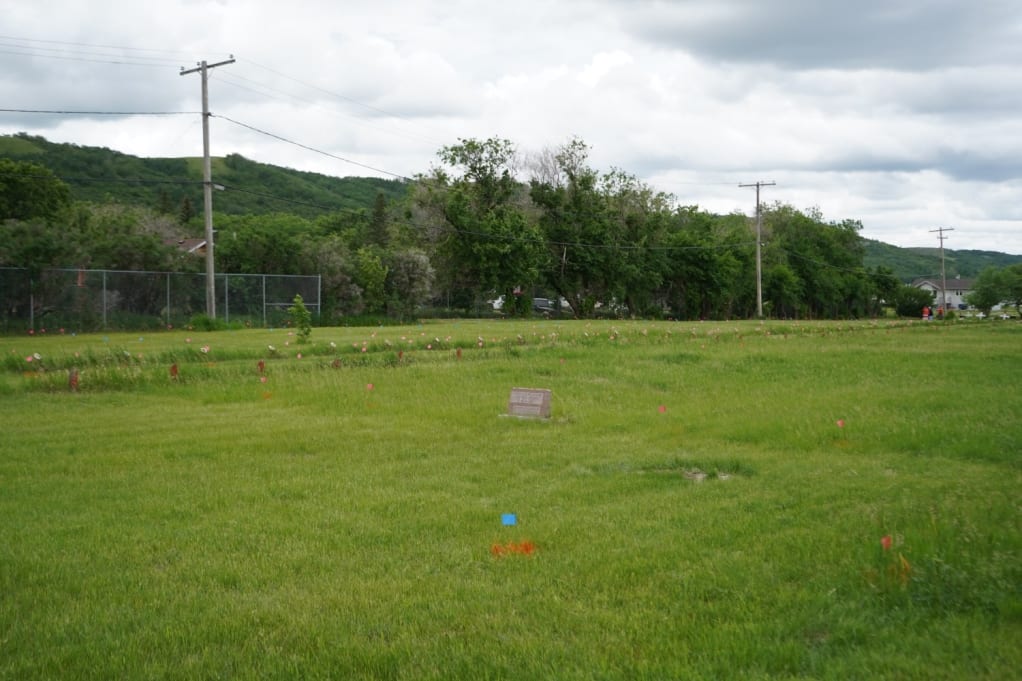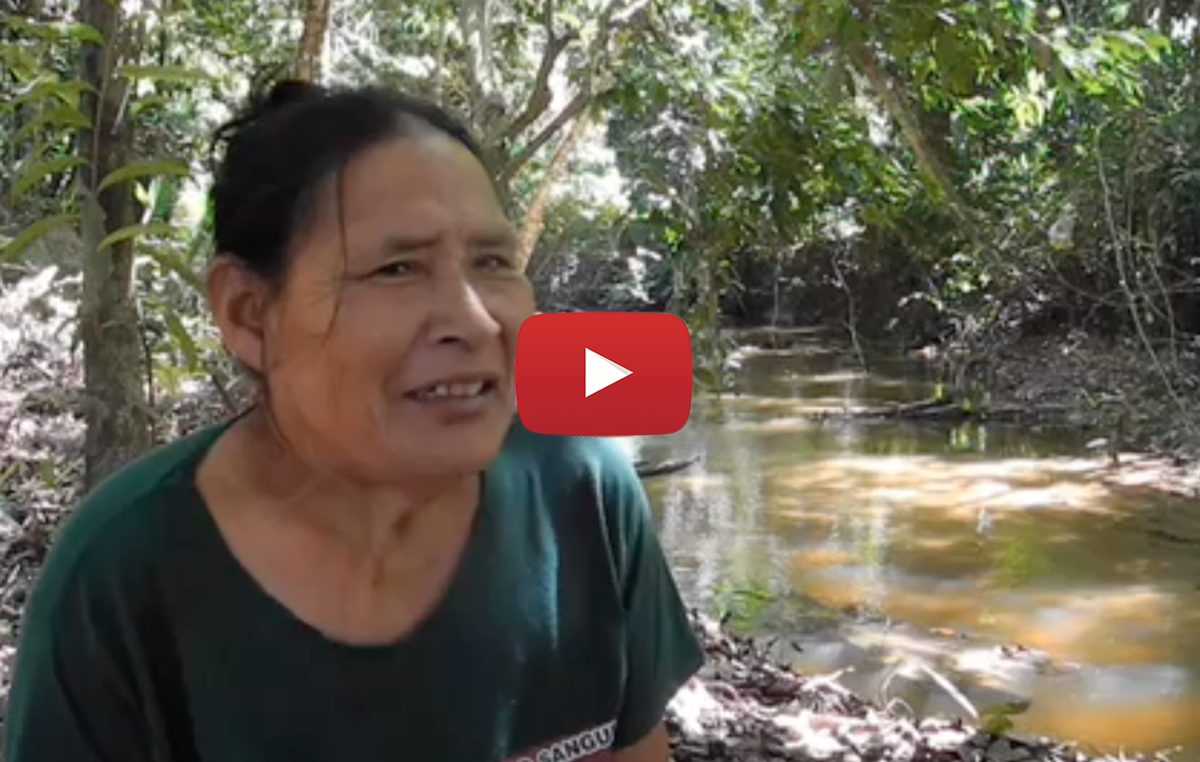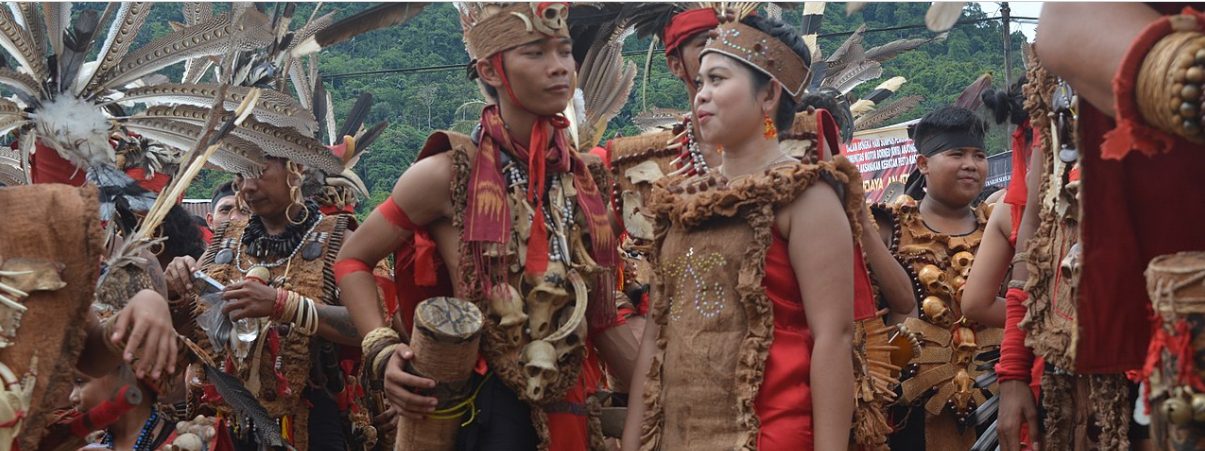In December 2018, the business committee of the White Earth Band of Ojibwe adopted a “rights of manoomin” tribal law, which recognized wild rice as having the rights to exist, flourish, regenerate, and evolve, as well as inherent rights to restoration, recovery, and preservation.
This action was brought to enforce both the rights of manoomin (pursuant to the tribal law), as well as Treaty rights held by the tribe and tribal members. The Treaty rights, recognized in the 1837, 1854, and 1855 Treaties with the Chippewa and U.S. government, guaranteed the rights of the tribe to gather wild rice and other aquatic plants from public waters on Treaty lands.
Frank Bibeau, lawyer for the plaintiffs, stated, “The State of Minnesota is ignoring its treaty obligations and tribal laws in allowing the Enbridge corporation to take five billion gallons of water for the construction of the pipeline. This action is about upholding manoomin’s right to exist and flourish as established by tribal law, and about Minnesota’s legal obligations pursuant to the Treaties signed with the Chippewa. All we are demanding is that those Treaties be honored, and manoomin recognized as having the sacred status as recognized by tribal law.”
The action was filed in the White Earth Band of Ojibwe’s Tribal Court, and the complaint will be served on Minnesota officials.

by DGR News Service | Aug 9, 2021 | Indigenous Autonomy, Movement Building & Support, Toxification
- An Indonesian court has acquitted six villagers on the island of Bangka in a criminal case widely seen as an attempt to silence them by a company accused of polluting their village.
- Experts say the court ruling sets a precedent for future cases where environmental defenders are being censored, intimated and silenced through so-called SLAPP (strategic lawsuit against public participation) litigation.
- The villagers have since 2017 been fighting against a tapioca company, PT Bangka Asindo Agri, that operates near their community and produces waste that emits a pungent stench.
- The environment ministry has launched an investigation into the case and filed its own lawsuit against the company for unpermitted pollution; the company denies the charge and has lobbied parliament to intervene with the ministry to drop the case.
This article originally appeared in Mongabay.
Featured image: The map of Bangka in Indonesia. Image courtesy of Ewesewes/Indonesian Wikipedia.
by Hans Nicholas Jong
JAKARTA — A court in Indonesia has acquitted six villagers in a dispute against a tapioca factory, ruling that the criminal charges, allegedly brought at the behest of the company, were frivolous and could not be used to silence criticism of environmental violations.
Experts have hailed the ruling as unprecedented, as it marks the first time in Indonesia’s legal history in which a court has thrown out litigation considered a form of “strategic lawsuit against public participation” or SLAPP.
SLAPP typically describes any kind of litigation with little to no merit that’s brought with the aim of censoring, intimidating or silencing critics speaking out against those in power or on issues of public interest.
This particular case revolves around a conflict between villagers on Bangka Island, off the southeast coast of Sumatra, and a tapioca flour mill operated by PT Bangka Asindo Agri (BAA).
Since the company began operating in 2017, residents of the village of Kenanga have complained about the pungent stench coming from the waste churned out by the nearby mill. Heti Rukmana, 29, whose house is 700 meters, or less than half a mile, from the factory, said the smell was so foul and intense that she had trouble breathing.
“Whenever the rotten stench comes, I feel nauseous and want to throw up,” she told Mongabay. “My first child had a problem in her lungs when she was born. So whenever there’s a foul smell, I take my daughter to her room and close the door. I’m scared that she’ll suffocate.”
After repeatedly failing to get the company to address the issue, the villagers prepared to bring a class-action lawsuit in May 2020. Spearheading that move were six villagers, including Heti, who served as neighborhood unit chiefs at the time.
In June 2020, the six villagers were reported by a local to the police for organizing a meeting to discuss the plan, on the grounds that they were no longer serving as neighborhood unit heads by then.
Prosecutors then brought the case to a district court in Sungailiat, the Bangka district seat, charging the villagers with impersonating officials.
Lawyers representing the villagers tried to get the court to dismiss the case by arguing that the organizing of the meeting was an act to defend the residents’ rights to clean air and a healthy environment. This right is enshrined in the 2009 Environmental Protection and Management Law, which states that no criminal charges may be brought against anyone for campaigning for their right to a clean environment. The article is commonly referred as an anti-SLAPP measure to thwart malicious lawsuits.
Nevertheless, the court proceeded to rule the six villagers guilty of the impersonation charge, arguing that their crime wasn’t related to the residents’ fight for a clean environment. The court sentenced them to a month in prison, prompting them to file an appeal with the provincial high court.
At the high court, the judges agreed with the villagers, saying their right to fight for a clean environment is protected under the 2009 environmental protection law and thus they can’t face criminal charges for exercising that right. The high court subsequently overturned the district court’s ruling, acquitting Heti and the five other former neighborhood unit chiefs.
“The defendants’ actions were merely to give the public [an opportunity to] participate in the public interest on the effect of pollution in the form of smell caused by the production activities of PT BAA,” the high court judges said in their verdict.
Monumental
The legal victory for the six villagers is monumental as it is the first time an Indonesian court has ruled in favor of environmental defenders by using the anti-SLAPP article in a criminal case.
But the case should never have gotten as far as the high court, and the villagers should never have been jailed in the first place if police investigators and prosecutors had acknowledged early on that the charges were malicious and frivolous, according to the Indonesian Center for Environmental Law (ICEL), an NGO.
As such, this verdict should serve as a stepping stone toward better protection for communities and activities against SLAPP, ICEL executive director Raynaldo Sembiring said. A stand-alone regulation and law would provide that stronger protection, he added.
“The anti-SLAPP mechanism is not strong yet because we don’t have regulations or policies that could be implemented, except for the anti-SLAPP article [in the 2009 environmental protection law],” Raynaldo said. “So we could start discussing the opportunity to have an anti-SLAPP law.”
Such a law would provide a stronger guarantee for public participation, protection and remedy, and clearer authority for law enforcers to stop SLAPP cases as early as possible.
But the prospects of passing such a law are weak, given parliament’s track record of stalling legislation aimed at protecting public interests, versus its zeal for fast-tracking controversial bills aimed at environmental deregulation in favor of business interests.
“Therefore, we hope that the government could draft an implementing regulation for the anti-SLAPP article as soon as possible, possibly in the form of a ministerial regulation,” Raynaldo said.
However, even without having stand-alone regulations in place, law enforcers are actually able to stop SLAPP cases before they go to court, since a mechanism to end investigations and prosecutions already exists in the country’s Criminal Code.
“This is also an important moment for investigators to coordinate with ministers, the Attorney General’s Office and the police,” Raynaldo said. “These institutions can build communication and stop [SLAPP] cases as early as possible.
“In the past, it might have been difficult because there were no rulings that used the anti-SLAPP article,” he added. “That’s why this ruling should be a stepping stone to be replicated [in future cases].”
Irregularities
Muhnur Satyaprabu, a lawyer for the six Kenanga villagers, said the district court’s guilty verdict is an example of how local communities are fighting an uphill battle against polluters and law enforcers who often side with corporate interests.
He said there were irregularities throughout the legal process, with the lawyers denied the right to present supplemental evidence, on the grounds that the new evidence hadn’t been entered into the court dossier. Yet the district court judges allowed prosecutors to present additional witnesses who also were not listed in the dossier.
Muhnur also pointed to irregularities in how the police dealt with the case, particularly the detention of the six villagers: Heti was two months pregnant at the time, and another of the villagers was recovering from a stroke.
Heti said she was placed in a cell block with 39 male inmates. After eight days in the police’s detention center, the six villagers were transferred to a larger prison, where they spent another 14 days.
During her time there, Heti said she asked the warden whether she could spend time outdoor to get some sunshine for the health of her fetus.
“But I wasn’t allowed,” she said. “So [I spent] 18 days in a closed room, with no sunlight at all. I slept on a tiled floor with no mat.”
Heti said the villagers were also intimidated during their time in prison to dismiss their lawyers — something that Heti vehemently opposed. She added didn’t feel scared because she knew she hadn’t done anything wrong.
“But I did miss my family because I have a 2-year-old daughter,” she said. “And I felt disappointed because the person who reported us [to the police] was our own neighbor, instead of the company. So we’re being pitted against each other [by the company].”
Heti said she believed BAA was be behind the lawsuit, regardless of the fact that it was her neighbor who reported them to the police. For one thing, she said, when police were interrogating them, one of the investigators said they could be released if they just apologized to the company.
“The police officer himself said, ‘You disturbed the company, you disturbed people with money. If you want this case to end, go ahead and apologize to the company,’” Heti said.
She said she was also approached by police and state security officers three times prior to being reported to the police. On each occasion, she said, they told her to stop speaking out against BAA. They offered her 50 million rupiah ($3,500) and a used car in exchange for her silence, Heti added.
She said there was no way she would sell out her village for an old car.
“I just wanted the waste to stop [polluting my village],” Heti said.
BAA has denied allegations that it was behind the lawsuit.
“We see that there’s an effort to link this [case] with PT BAA,” the company’s lawyer, Arifin Joshua Sitorus, said during a hearing before parliament on April 7. “But actually there’s no connection between the case and PT BAA.”
Muhnur said all the irregularities highlighted in the case point to abuses of power, and therefore strengthen suspicions that the villagers are being criminalized for standing up against the company.
“The lesson here is that abuse of power at the local level is rampant, especially when it comes to environmental defenders,” he said. “They’re very prone to criminalization. Their protection is not strong because the media and the civil society are not strong enough.”
Investigation
Arifin, however, said it was BAA that was the victim of criminalization in this case, since the environment ministry filed a lawsuit in March against the company for unpermitted pollution.
He said the lawsuit should have been a last legal resort, after other forms of punishment, such as administrative sanctions.
“[But the ministry] had never given [BAA] administrative sanctions [before the lawsuit], and law enforcement suddenly came out of nowhere,” Arifin said. “This is what we perceive as an effort to criminalize [BAA].”
The environment ministry’s law enforcement chief, Rasio Ridho Sani, said the government was entitled to file a lawsuit against a polluter if their activities had caused an impact, as in the case of BAA.
Arifin denied that BAA had polluted the environment, saying the company has the best wastewater management system of the five tapioca factories operating in Bangka. Firdianto, BAA’s owner and president, said the factory’s operations had indeed produced a pungent smell in the first two years, but that subsequent treatment of the liquid waste had put an end to the smell.
“[In] 2019, [the smell] was practically completely gone,” Firdianto said at April’s parliamentary hearing. “All of our waste has met [regulatory] standards.”
Heti, though, said the smell is still there, even though it comes and goes depending on the direction of the wind, and is not as intense as when the factory started operating.
The environment ministry also found during its investigation in 2020 that the level of methanethiol — a colorless, flammable gas with the distinctly putrid odor of rotten eggs — produced by the factory exceeded regulatory limits.
Darori Wonodipuro, a lawmaker from the Gerindra party who paid an impromptu visit to the factory in November 2020, said the smell was so strong that he could barely stand it.
“Ten minutes [there] and we were already asking to go home because [we] couldn’t stand the smell,” he said during the hearing with the BAA representatives.
Arifin, the company’s lawyer, called on parliament to intervene and stop the environment ministry’s investigation, which he called “thick with arrogance.”
Darori said parliament should not interfere with the ministry’s legal efforts, adding the case should be settled in court.
This is not the first time BAA has sought protection against the environment ministry’s probe and lawsuit. Rasio, the ministry’s enforcement head, said BAA has been resisting efforts to investigate the factory’s operations. He said the company had failed to make officials available for questioning whenever the ministry summoned them.
Instead of cooperating in the investigation, the company sent letters in May 2020 to various government institutions, including the president, the state intelligence agency, the police and the Attorney General’s Office, accusing the environment ministry of criminalizing BAA, according to Rasio.
And the company also refused to sign the minutes drawn up by the ministry after inspectors had conducted a field investigation, he added.
“We have handled so many cases, thousands of them, but this resistance by PT BAA is not right,” Rasio said. “They should just explain the matter to us.”
Rasio added the ministry would proceed with its case despite the company’s belligerence.
Heti said the Kenanga villagers would also continue with their fight, even though some of them are still fearful of ending up in jail.
“We won’t back off. I myself am still posting news [about the smell] on social media,” she said. “People should realize that this company is not right. Instead of working on its waste [management], we were pitted against each other and against law enforcers. So we have to fight.”

by DGR News Service | Aug 5, 2021 | Colonialism & Conquest, Indigenous Autonomy, People of Color & Anti-racism, Repression at Home, White Supremacy
After mass graves full of Indigenous children have been found, how can Canada justify ongoing land theft?
Featured image: The site near the former Marieval residential school where a ground search has been underway. Image has been shared by The Federation of Sovereign Nations and Cowessess First Nation. (Photo by Dennis Ward, Twitter)
By Justin Podur
Canada is developing a new image: one of burning churches, toppling statues, and mass graves. There are thousands more unmarked graves, thousands more Indigenous children killed at residential schools, remaining to be unearthed. There can be no denying that this is Canada, and it has to change. But can Canada transform itself for the better? If the revelation of the mass killing of Indigenous children is to lead to any actual soul-searching and any meaningful change, the first order of business is for Canada to stop its all-front war against First Nations. Much of that war is taking place through the legal system.
Canadian politicians have said as much, adopting a motion in June calling for the government to stop fighting residential school survivors in court. A long-standing demand, it has been repeated by Indigenous advocates who have expressed amazement in the face of these horrific revelations that the Canadian government would nonetheless continue to fight Indigenous survivors of systematic child abuse by the state.
To get a sense of the scope of Canada’s legal war on First Nations, I looked at a Canadian legal database containing decisions (case law) pertaining to First Nations. I also looked at the hearing lists of the Federal Court of Canada for ongoing cases. My initial goal was to identify where Canada could easily settle or abandon cases, bringing about a harmonious solution to these conflicts. Two things surprised me.
The first was the volume and diversity of lawsuits Canada is fighting. Canada is fighting First Nations everywhere, on an astoundingly wide range of issues.
The second thing: Canada is losing.
The Attack on Indigenous Children and Women
In his 1984 essay “‘Pioneering’ in the Nuclear Age,” political theorist Eqbal Ahmad argued that the “four fundamental elements… without which an indigenous community cannot survive” were “land, water, leaders and culture.” Canada fights Indigenous people over land, water, fishing rights, mining projects, freedom of movement, and more. The assault on Indigenous nations is also a war against Indigenous children and women.
In the high-profile case of First Nations Child & Family Caring Society of Canada et al. v. Attorney General of Canada, laid out in detail by Cindy Blackstock, “the First Nations Child and Family Caring Society of Canada and the Assembly of First Nations filed a complaint under the Canadian Human Rights Act alleging” in 2007 “that the Government of Canada had a longstanding pattern of providing less government funding for child welfare services to First Nations children on reserves than is provided to non-Aboriginal children.” The Canadian Human Rights Tribunal (CHRT) found in favor of the First Nations complainants in 2016.
Note that this isn’t about the history of residential schools. It’s about discrimination against Indigenous kids in the present day. “In fact, the problem might be getting worse,” writes Blackstock, compared to “the height of residential school operations.” As evidence, she refers to a 2005 study of three sample provinces showing a wide gap between the percent of First Nations children in child welfare care (10.23 percent) compared to a much lower rate for non-First Nations children (0.67 percent). In 2006, following the Canadian government’s repeated failures to act on the inequity described in this report (which also included comprehensive suggested reforms that had both moral and economic appeal), Blackstock writes, “the Caring Society and the Assembly of First Nations agreed that legal action was required.” The CHRT was very clear in its 2019 decision that the federal government should compensate each victim the maximum amount, which addressed the victims as follows:
“No amount of compensation can ever recover what you have lost, the scars that are left on your souls or the suffering that you have gone through as a result of racism, colonial practices and discrimination.”
In May 2021, Canada, which has spent millions of dollars fighting this case, tried to overturn the CHRT’s ruling.
Canada’s war on Indigenous children is also a war on Indigenous women. The sterilization of Indigenous women, beginning with Canada’s eugenics program around 1900, is another act of genocide, as scholar Karen Stote has argued. Indigenous women who had tubal ligation without their consent as part of this eugenics program have brought a class-action suit against the provinces of Alberta and British Columbia, both of which had Sexual Sterilization Acts in their provincial laws from the 1920s in Alberta and 1930s in British Columbia until the early 1970s, and Saskatchewan, where sexual sterilization legislation was proposed but failed by one vote in 1930. A Senate committee found a case of forced sterilization of an Indigenous woman as recently as 2019.
The Legal-Financial War on First Nations Organizations
As Bob Joseph outlines in his 2018 book 21 Things You May Not Know About the Indian Act, Canada first gave itself the right to decide Indian status in the Gradual Civilization Act of 1857, which created a process by which Indigenous people could give up their Indian status and so become “enfranchised”—which they would have to do if they wanted to attend higher education or become professionals. The apartheid system was updated through the Indian Act of 1876, from which sprang many evils including both the residential schools and the assertion of Canadian control over the way First Nations govern themselves. In 1927, when Indigenous veterans of World War I began to hold meetings with one another to discuss their situation, Canada passed laws forbidding Indigenous people from political organization and from raising funds to hire legal counsel (and from playing billiards, among other things). The Indian Act—which is still in effect today with amendments, despite multiple attempts to repeal it—outlawed traditional governance structures and gave Canada the power to intervene to remove and install Indigenous governance authorities at will—which Canada did continuously, from Six Nations in 1924 to Barriere Lake in 1995. As a result, at any given moment, many First Nations are still embroiled in lawsuits over control of their own governments.
Canada controls the resources available to First Nations, including drinking water. In another national embarrassment, Canada has found itself able to provision drinking water to diamond mines but not First Nations. This battle too has entered the courts, with a class-action suit by Tataskweyak Cree Nation, Curve Lake First Nation, and Neskantaga First Nation demanding that Canada not only compensate their nations, but also work with them to build the necessary water systems.
Canada dribbles out humiliating application processes by which Indigenous people can try to exercise their human right to housing. When combined with the housing crisis on reserves, these application processes have attracted swindlers like consultant Jerry Paulin, who sued Cat Lake First Nation for $1.2 million, claiming that his efforts were the reason the First Nation received federal funds for urgent housing repairs.
Canada uses the threat of withdrawal of these funds to impose stringent financial “transparency” conditions on First Nations—the subject of legal struggle, in which Cold Lake First Nations has argued that the financial transparency provisions violate their rights. Canada has used financial transparency claims to put First Nations finances under third-party management, withholding and misusing the funds in a not-very-transparent way, as the Algonquins of Barriere Lake charged in another lawsuit. An insistence on transparency is astounding for a country that buried massive numbers of Indigenous children in unmarked graves.
Win or lose, the lawsuits themselves impose high costs on First Nations whose finances are, for the most part, controlled by Canada. The result is situations like the one where the Beaver Lake Cree are suing Canada for costs because they ran out of money suing Canada for their land. When First Nations are winning in court, Canada tries to bankrupt them before they get there.
Land and Resources Are the Core of the Struggle
The core issue between Canada and First Nations is land. Most battles are over the land on which the state of Canada sits, all of which was stolen and much of which was swindled through legal processes that couldn’t hold up to scrutiny and are now unraveling. “[I]n simple acreage,” the late Indigenous leader Arthur Manuel wrote in the 2017 book The Reconciliation Manifesto, this was “the biggest land theft in the history of mankind,” reducing Indigenous people from holding 100 percent of the landmass to 0.2 percent. One of the most economically important pieces of land is the Haldimand tract in southern Ontario, which generates billions of dollars in revenue that belongs, by right, to the Six Nations, as Phil Monture has extensively documented. Six Nations submitted ever-more detailed land claims, until Canada simply stopped accepting them. But in July, their sustained resistance led to the cancellation of a planned suburban development (read: settlement) on Six Nations land.
Many of the First Nations court battles are defensive. Namgis, Ahousaht, Dzawada’enuxw, and Gwa’sala-’Nakwaxda’xw First Nations have tried to defend their wild fisheries against encroachment and pollution by settler fish farms. West Moberly, Long Plain, Peguis, Roseau River Anishinabe, Aroland, Ginoogaming, Squamish, Coldwater, Tsleil-Waututh, Aitchelitz, Skowkale, and Shxwha:y Village First Nations challenged dams and pipelines. Canada has a history of “pouring big money” into these court battles to the tune of tens of millions—small money compared to its tens of billions subsidizing and taking over financially unviable pipelines running through Indigenous lands—including that of the Wet’suwet’en, whose resistance sparked mass protests across Canada in 2020. The duty to consult First Nations on such projects is itself the outcome of a legal struggle, won in the 2004 decision in Haida Nation v. British Columbia.
First Nations who were swindled or coerced out of their lands (or water, as with Iskatewizaagegan No. 39 Independent First Nation’s case against Winnipeg and Ontario for illegally taking their water from Shoal Lake for use by the city of Winnipeg starting in 1913) fight for their land back, for compensation, or both. The Specific Claims Tribunal has 132 ongoing cases. In Saskatchewan in May, the tribunal awarded Mosquito Grizzly Bear’s Head Lean Man First Nation $141 million and recognition that they never surrendered their land as Canada had claimed they had in 1905. In June, Heiltsuk First Nation won a part of their land back.
First Nations also fight for their fishing rights in courts and out on the water, as settler fishers have physically attacked and tried to intimidate Mi’kmaw fishers on Canada’s east coast. In June, on the west coast, after the British Columbia Court of Appeals found against Canada, the federal government announced it wouldn’t appeal, dropping a 15-year litigation that restricted Nuu-chah-nulth First Nations fishing quotas.
Decolonization Just Might Be Inevitable
Why does Canada keep fighting (and losing) even as its legitimacy as a state built on theft and genocide crumbles? It’s not merely the habits of centuries. It’s also the absence of any project besides the displacement of First Nations and the plunder of the land. Canada could take the first step to ending all this by declaring a unilateral ceasefire in the legal war. Too few Canadians understand that this would actually be a very good thing. First Nations lived sustainably for thousands of years in these extraordinary northern ecosystems. Then the European empires arrived, bringing smallpox and tuberculosis among other scourges. Local extinctions of beaver and buffalo quickly followed, as well as the total extinction of the passenger pigeon. Today’s settler state has poisoned pristine lakes with mine tailings, denuded the country’s spectacular forests, and gifted the atmosphere some of the world’s highest per capita carbon emissions (seventh in the world in 2018—more than Saudi Arabia, which was 10th, and the U.S., which was 11th). Indigenous visionaries have better ideas, such as those presented by Leanne Betasamosake Simpson and Arthur Manuel, or for that matter the Red Deal and the People’s Agreement of Cochabamba.
Under Indigenous sovereignty, Canadians could truly be guests of the First Nations, capable of fulfilling their obligations to their hosts and their hosts’ lands, rather than the pawns of the settler state’s war against those from whom the land was stolen.
This article was produced by Globetrotter. Justin Podur is a Toronto-based writer and a writing fellow at Globetrotter. You can find him on his website at podur.org and on Twitter @justinpodur. He teaches at York University in the Faculty of Environmental and Urban Change.

by DGR News Service | Aug 4, 2021 | Colonialism & Conquest, Indigenous Autonomy, People of Color & Anti-racism, Repression at Home, Toxification, White Supremacy
Editor’s note: Testing nuclear bombs in “French Polynesia” is yet another example of the insane western mindset of colonialism, racism and entitlement.
France conducted 193 nuclear tests in the South Pacific
This article originally appeared in Global Voices.
Featured image: This is the third picture of a series of the Licorne thermonuclear test in French Polynesia, a scan of a (digitally restored) hard copy of a picture taken by the French army. Photo and caption by Flickr user Pierre J. (CC BY-NC-SA 2.0)
Written by Mong Palatino
More than 1,000 people gathered in the Tahiti capital of Papeete to condemn the failure of the French government to take full accountability for its nuclear testing program in the South Pacific.
France conducted 193 nuclear tests from 1966–1996 in Mā’ohi Nui (French Polynesia). France’s 41st nuclear experiment in the Pacific led to catastrophe on July 17, 1974, when France tested a nuclear bomb codenamed “Centaure.” Because of weather conditions that day, the test caused an atmospheric radioactive fallout which affected all of French Polynesia. Inhabitants of Tahiti and the surrounding islands of the Windward group were reportedly subjected to significant amounts of ionizing radiation 42 hours after the test, which can cause significant long-term health problems.
The July 17, 2021 protest was organized under the banner of #MaohiLivesMatter to highlight the target=”_blank” rel=”noopener”continuing fight for nuclear justice. Campaigners said that despite the statement of former French President François Hollande in 2016 recognizing the negative environmental and health impact of the nuclear tests, the French government has done little to provide compensation or rehabilitation to French Polynesia.
After analyzing 2,000 pages of declassified French military documents about the nuclear tests, in March 2021 a group of researchers and investigative journalists from INTERPRT and Disclose released their findings on the health implications of the experiments.
According to our calculations, based on a scientific reassessment of the doses received, approximately 110,000 people were infected, almost the entire Polynesian population at the time.
The report has revived public awareness in France about the impact of their nuclear testing program. The French government held a roundtable discussion about the issue in Paris in early July. Though some criticized the French government for their alleged lack of transparency around the clean-up efforts in French Polynesia, officials denied these claims.
Protesters in Tahiti insisted that the French government should do more to address the demands of French Polynesian residents. Some noted that if French President Emmanuel Macron was able to seek forgiveness for the role of France in enabling the Rwanda genocide in 1994, he should at least make a similar apology for the harmful legacy of the nuclear tests in the Pacific.
The #MaohiLivesMatter protest has inspired solidarity in the Pacific.
Community leaders of West Papua expressed their support for the protest:
Youth activists from Pacific island nations also took part in the protest:
The International Campaign to Abolish Nuclear weapons (ICAN) Australia issued this statement of support:
As you gather in Maohi Nui on the 17th July we offer our deep respects to your leaders and community members who have long spoken out against the harms imposed by these weapons. We have heard your calls for nuclear justice. We continue to listen closely when you speak of the lived experience of the testing years and the on–going harms.
French President Emmanuel Macron is expected to tackle the legacy of nuclear testing during his visit to Tahiti this month.










